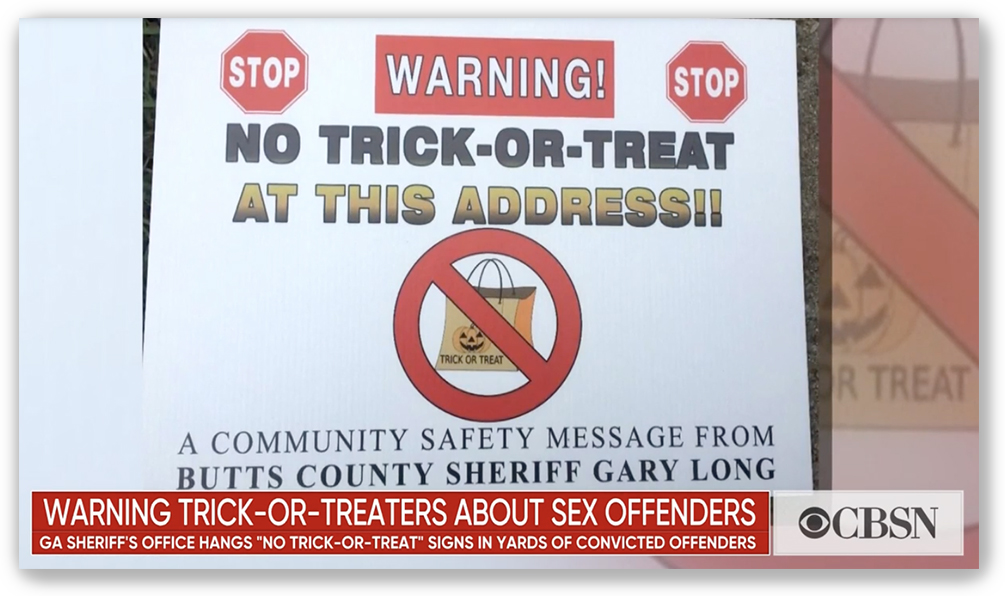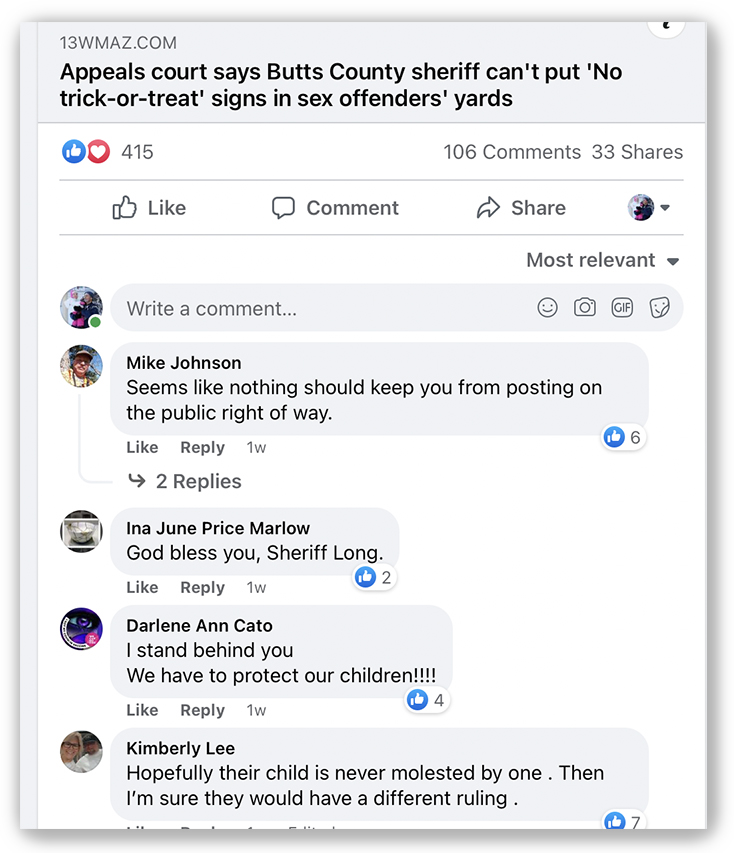We post news and comment on federal criminal justice issues, focused primarily on trial and post-conviction matters, legislative initiatives, and sentencing issues.

YOU PUT THE WORDS RIGHT IN MY MOUTH
In October 2018, two Butts County Sheriff’s deputies placed signs in the front yards of all 57 registered sex offenders in the County, warning kids to “STOP” and “NO TRICK-OR-TREAT AT THIS ADDRESS.” When one of the people whose house had the posted sign called the Sheriff, he was told it was a crime to remove it.
The next year, three of the registered sex offenders sued, seeking a court order prohibiting the Sheriff from placing the signs again. The district court denied the injunction.
Last week, the 11th Circuit reversed, concluding that “the Sheriff’s warning signs are compelled government speech, and their placement violates a homeowner’s First Amendment rights.” The Court noted that First Amendment protection “includes both the right to speak freely and the right to refrain from speaking at all… The right to speak and the right to refrain from speaking are complementary components of the broader concept of individual freedom of mind.”
Where First Amendment rights are implicated, the state has to show it has a “compelling interest” in doing so and that the violation is “narrowly tailored” to achieve that end. Everyone agreed that protecting kids from sex abuse is compelling. But the Sheriff tried to swat a fly with a sledgehammer.
Before placing the signs, the Sheriff didn’t consider whether any of the registrants were classified as likely to recidivate. What’s more, he admitted that in the past six years he’d been Sheriff, he had never had an issue with a registrant having unauthorized contact or reoffending with a minor. The Sheriff could not show the Butts County sex offenders “actually pose a danger to trick-or-treating children or that these signs would serve to prevent such danger.”
 Influencing the decision might have been the Sheriff’s explanation that he had placed the signs because Georgia law forbids registered sex offenders from participating in Halloween. After the warning signs were placed, the Sheriff posted a message on the Department’s Facebook page, along with a picture of the sign, in which he said as much. That was more trick than treat: Georgia law says nothing of the such.
Influencing the decision might have been the Sheriff’s explanation that he had placed the signs because Georgia law forbids registered sex offenders from participating in Halloween. After the warning signs were placed, the Sheriff posted a message on the Department’s Facebook page, along with a picture of the sign, in which he said as much. That was more trick than treat: Georgia law says nothing of the such.
“Assuming that yard signs alerting people to the residences of registered sex offenders on Halloween would prevent the sexual abuse of children (which, we repeat, is not supported by any record evidence),” the Circuit held, “the signs are not tailored narrowly enough.”
The decision against the Sheriff does not seem to have affected his popularity…
McClendon v. Long, Case No. 21-10092, 2022 U.S. App. LEXIS 1635 (11th Cir., Jan. 19, 2022)
– Thomas L. Root



